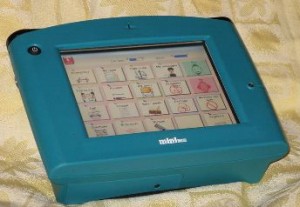Education
Adaptive Technology Helps Students Overcome Barriers
Guest Blogger: Harper Mac
If you are living with a disability, you may have struggled through high school. Challenges may have included early-morning bus pickups, stampedes during passing periods, inevitable stares and whispers from the popular kids, and teachers’ demands for you to express yourself just like everyone else. Finishing high school may have been a relief, and continuing your education may have been the last thing on your mind.
Until now, that is. Maybe you’ve started to think about pursuing a college degree. You’ve had persistent thoughts about developing your interests and expanding your knowledge. Until recently, higher education was out of reach for many individuals with disabilities. Attending school on campus requires resources. You may need special accommodations that are not always available, and you may not be able to keep up with your note-taking while attending class lectures. Online learning, however, is a viable possibility. You can attend school from your own home and go through lectures at your own pace. New technology can help you excel in an online college program. Here are a few examples of tools to improve your experience.
MyTalk Tools Mobile
This smartphone application from 2nd Half Enterprises, LLC, is designed for individuals who have trouble expressing themselves verbally. It is a tool to turn your thoughts into words by converting text, images, and symbols into audio files with a human voice. This application can make communication easier and faster. A use for MyTalk Tools Mobile and similar programs is if you need to talk to your professor in an online course.
Tools for Autism
If you have autism, you may have trouble expressing your feelings and thoughts. A variety of smartphone apps, such as Autism XPress, are designed to practice perceiving and expressing emotions. Living Safely is a tool to increase your proficiency in being safe in your home, community and on the Internet. The Autism Timer can help you keep track of the time on timed exams.
Speech Recognition Software
Speech and voice recognition software generates a text document by transcribing words as you speak out loud. Speech recognition is particularly useful if you have a disability that makes typing difficult. It facilitates the completion of homework assignments that would otherwise take hours of frustration from struggling with typing. Another use for speech recognition software is for transcribing or taking notes on online lectures. You can stop and rewind pre-recorded lectures as many times as necessary until the voice recognition program produces the written information you need.
Speech recognition software programs, such as those under the Dragon brand, are available for smartphones, Macintosh computers, and Windows operating systems. The best programs have a large vocabulary and the ability to recognize your words even if you have a speech impediment. Additional features may include translation and clap recognition capabilities.
Online learning is an opportunity for professional and personal growth. Software programs and smartphone apps can make learning easier and help you maintain a positive attitude so you can direct your energy toward studying instead of struggling with a learning disability. Many online programs have representatives to help you choose a school and determine which learning technology can help you succeed.
About the Author
Lindsey Harper Mac is a professional writer living in the Indianapolis area. She specializes in technology and social media articles. Lindsey is currently completing work on her graduate degree.





